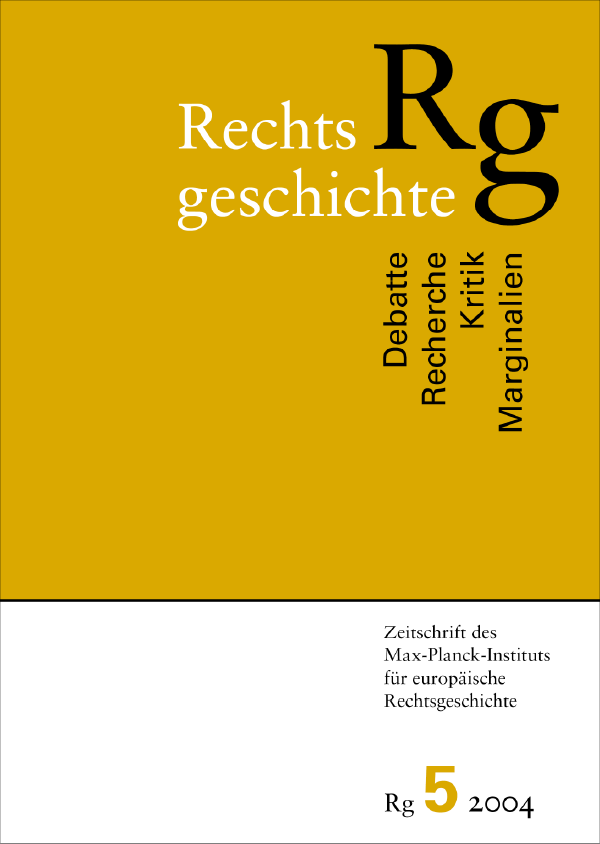Der Geist des Rechts in Jherings »Geist« und Jherings »Zweck«
Teil 1
DOI:
https://doi.org/10.12946/rg05/128-149Abstract
150 years of glory and respect for two great books like Jhering’s »The Spirit of Roman Law« (1852 sqq) and »Law as a Means to an End« (1877 sqq) call for a small celebration in 15 stages. The familiar quotations from Jhering’s vigorous texts on »the last causes of law« are still used in the present debate. Hence the reason for a celebration seems to be clear (Ch. 1.). A view into Jhering’s time and his environment reveals the problems (in 2. and 3.). The idealistic systems had fallen. Empiricism, realism, positivism etc. obscured and disquieted jurisprudence. The dogmatic Jhering quite easily copes with this challenge without a real turning point and new methods (4.). His ambitious fundamental works have some difficulty. Jhering’s way of looking at problems must be emphasized in advance. He has to find a way between the cult of logic and the cult of fact (5.). He tries to mediate and to save the »ethical system of planets« (Spirit) and to combine freedom and necessity, reason and nature and God for the sake of jurisprudence. Therefore he speeds up the old metaphysics of substance to a graded development (6.). Which steps for what? He builds a grandly planned but flawed »General theory of law« (7.). Problem and solution are dependent on their time (8.). Notwithstanding this, a view of the rich concrete themes in Spirit and Means amply repays all the effort (9.–15., in: Rg 6 [2005] forthcoming).
Downloads
Veröffentlicht
Zitationsvorschlag
Ausgabe
Rubrik
Lizenz
Copyright (c) 2004 Autor/in

Dieses Werk steht unter einer Creative Commons Namensnennung - Nicht-kommerziell - Keine Bearbeitung 3.0 International -Lizenz.





